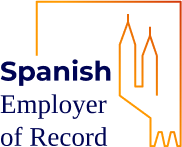14 April 2025
Employer and employee social security contributions in Spain: what you need to know
When expanding into Spain, understanding social security contributions is critical for ensuring compliance and effectively managing payroll. The Spanish social security system, known as Seguridad Social, provides employees with essential benefits, including healthcare, pensions, and unemployment coverage. Employers and employees alike share responsibility for funding this system through mandatory contributions.
This article will serve as a comprehensive guide, explaining how social security contributions work in Spain, outlining the obligations for both employers and employees, and exploring how these contributions affect payroll operations. Moreover, we’ll show how an Employer of Record (EOR) can help businesses manage social security compliance, enabling them to hire in Spain without the need to establish a local legal entity.
What is the Spanish social security system?
Spain’s social security system, Seguridad Social, is a cornerstone of the country’s employment infrastructure. It provides a range of benefits to workers, including healthcare coverage, retirement pensions, unemployment benefits, and protection against workplace injuries. By law, all employees working in Spain must be registered with the social security system, and both employers and employees contribute to funding it.
For employers, this means registering each employee with Seguridad Social and ensuring that contributions are calculated and submitted on time. For employees, a portion of their earnings is automatically deducted to cover their share of the contributions. Together, these funds support the country’s robust social safety net, helping workers maintain financial security throughout their careers and beyond.
Employer social security contribution obligations
Employers in Spain bear a significant portion of the responsibility for social security contributions. These contributions typically amount to 29–31% of an employee’s gross salary and are allocated across various categories, including:
- Common contingencies: Funding for general healthcare and maternity/paternity leave.
- Unemployment insurance: Providing support to workers who lose their jobs.
- Training: Contributing to vocational training and skill development.
- FOGASA (Salary Guarantee Fund): Ensuring compensation if a company becomes insolvent.
The exact percentage may vary slightly based on industry or employment type, but the total employer contribution is substantial. Employers must calculate these amounts and ensure they are submitted accurately each month. Failure to do so can result in fines, inspections, and reputational damage, making accurate compliance a top priority.
Employee social security contributions
Employees in Spain also contribute to social security, with a standard rate of around 6.35% of their gross salary. These contributions are automatically deducted by the employer and forwarded to the social security authorities. While the employer handles the administrative burden, the employee’s income funds this portion of the system.
For workers, these deductions directly impact take-home pay, reducing their net salary. Despite this reduction, employees benefit from comprehensive social protections, including healthcare coverage, unemployment support, and eventual retirement pensions. Employers are responsible for ensuring the correct amounts are withheld and submitted on behalf of their employees, maintaining compliance and safeguarding employee benefits.
How social security contributions impact payroll and compliance
Accurate social security contributions are not just a legal requirement; they are also a key element of effective payroll management in Spain. Employers must carefully calculate both their contributions and the employee’s deductions, ensuring that all figures align with Spanish regulations. Even minor errors can lead to significant compliance issues, including:
- Financial penalties: Late or incorrect filings can result in fines.
- Audits and inspections: Non-compliance may trigger a review by authorities.
- Reputational risks: A poor compliance record can harm an employer’s standing with workers and regulatory bodies.
- Increased costs: Missteps can lead to back payments and additional administrative work.
Employers must also manage additional complexities, such as contributions for part-time workers, fixed-term contracts, and freelance arrangements. Each category may have unique rules, adding further layers of compliance challenges.
How an Employer of Record helps ensure social security compliance in Spain
For international businesses, understanding Spain’s social security system can be daunting. That’s where a Spanish Employer of Record (EOR) can make a significant difference. An EOR acts as a local employer on behalf of a foreign company, taking on the administrative responsibilities of social security compliance. In Spain, a reliable EOR handles:
- Social security registration: Ensuring all employees are properly registered and contributions are set up correctly.
- Monthly filings: Submitting contributions on time and accurately.
- Payroll and tax compliance: Managing all deductions, withholdings, and remittances.
- Employee onboarding and contracts: Ensuring that employment agreements align with Spanish labour laws.
For example, A UK-based tech company decided to expand into Spain but struggled to navigate the country’s complex social security system. With no prior experience in Spanish payroll regulations, they found it challenging to calculate and remit employer social security contributions correctly. This led to delays, mounting compliance concerns, and the risk of penalties.
The company turned to an Employer of Record in Spain. The EOR took over the entire process, registering the employees with Seguridad Social, ensuring timely filings, and accurately calculating the required contributions. This allowed the UK company to operate seamlessly in Spain, without the need for a local legal entity or a steep learning curve. The EOR’s support solved their immediate compliance challenges and gave them peace of mind that their ongoing social security obligations were being appropriately managed.
By partnering with an EOR, businesses can streamline payroll operations, eliminate the risk of non-compliance, and avoid the need to set up a local legal entity. This approach is particularly valuable for companies expanding quickly, hiring remote talent, or testing the Spanish market without committing to full incorporation. An EOR provides peace of mind by handling all compliance aspects, allowing companies to focus on growth and operations.
Understand social security contributions
In Spain, social security contributions are a shared responsibility between employers and employees. Employers must pay a substantial portion of an employee’s gross salary to fund healthcare, pensions, and other benefits, while employees see a percentage deducted from their wages. Managing these contributions accurately is essential for compliance, financial planning, and maintaining trust within the workforce.
The complexities of social security compliance can be overwhelming for international businesses entering the Spanish market. Partnering with a Spanish Employer of Record (EOR) simplifies the process, ensuring that all contributions are correctly calculated, reported, and submitted. With the help of an EOR, companies can focus on building their teams and expanding their presence in Spain, confident that their payroll operations are in expert hands.
Contact us today to learn how an Employer of Record can help your business manage Spain’s social security system efficiently and compliantly.



